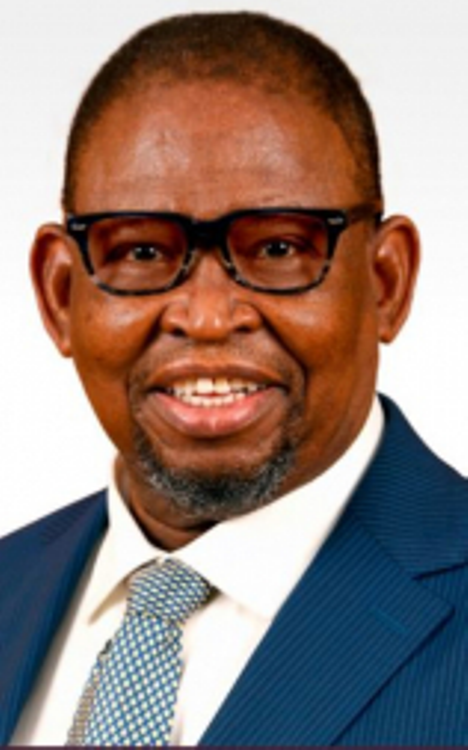Godongwana Announces R1.1bn Boost for Political Parties, Eyes Funding Reforms
The Finance Minister underscored the growing importance of public funding to maintain fairness and competitiveness in South Africa’s multi-party democracy.

- Country:
- South Africa
In a major announcement aimed at strengthening South Africa’s democratic institutions, Finance Minister Enoch Godongwana has confirmed that an additional R1.1 billion will be allocated to political parties under the Medium-Term Expenditure Framework (MTEF). The declaration was made during his keynote address at the IEC Political Party Funding Symposium held in Durban this week.
The symposium brought together leaders from political parties, government, academia, and civil society to review the effectiveness of the Political Party Funding Act (PPFA) and address ongoing challenges in the regulation of party financing.
Additional Funding and the 2026 Local Government Elections
The Finance Minister underscored the growing importance of public funding to maintain fairness and competitiveness in South Africa’s multi-party democracy.
“Over the MTEF, an additional R1.1 billion in funding will be made available to political parties,” Godongwana stated. “Mindful of next year’s Local Government Elections, however, we are considering availing even further funding.”
This announcement comes as South Africa prepares for the 2026 local government elections, an event critical to grassroots governance and service delivery. Godongwana emphasized that ensuring a level playing field for both established and smaller political formations is vital for democratic credibility.
R3 Billion Already Disbursed Since 2011
Reflecting on the historical context, Godongwana noted that since 2011/12, R3 billion has already been provided to political parties through public funding channels—primarily to help smaller and emerging parties compete fairly in a landscape often dominated by privately financed behemoths.
However, he also acknowledged the fiscal pressures facing the country.
“The performance of the economy and lower revenue collection present serious challenges, which may hinder the implementation of a common funding pool for political contestants supported by the fiscus.”
Transparency, Reform, and the Role of the PPFA
The Minister credited the Political Party Funding Act (PPFA) of 2018, which came into effect on 1 April 2021, with transforming the country’s previously opaque political finance system.
“Political funding in South Africa has historically been opaque, with little regulation or public disclosure until recent years,” he said.
The PPFA mandates political parties to disclose sources of private donations, sets limits on anonymous donations, and empowers the Electoral Commission (IEC) to audit party finances. While the law was a major milestone, Godongwana admitted that significant implementation and enforcement challenges remain, particularly:
-
Declining private donations due to strict disclosure requirements
-
Lack of regulation at local government level
-
Inconsistent compliance and limited public understanding
Strengthening Democratic Institutions and Combating Illicit Finance
Godongwana reaffirmed the government’s commitment to clean governance and financial transparency, especially in light of ongoing efforts to exit the Financial Action Task Force (FATF) grey list.
“We have made good progress… where our reforms to resolve systemic weaknesses in anti-money laundering and counter-terrorism financing, and to root the links with political party funding, have been recognised.”
He highlighted the importance of strong, independent institutions like the IEC and the role of responsible public finance management in ensuring credible elections.
Funding for 2026 Elections and Security
Looking ahead to the 2026 electoral cycle, the Finance Minister also reiterated previously announced allocations:
-
R885 million to the IEC for administering the elections
-
R550 million to SAPS and the South African National Defence Force (SANDF) for maintaining public order
This combined allocation of over R1.4 billion demonstrates the government’s intent to ensure free, fair, and peaceful elections.
The Road Ahead: Proposals for Reform
Godongwana urged participants at the symposium to contribute constructively to proposed reforms in political finance. Key issues under consideration include:
-
Extending the PPFA to cover local government elections
-
Establishing a common funding pool managed under transparent rules
-
Strengthening IEC enforcement capacity
-
Ensuring real-time disclosure mechanisms for donations
“Democracy thrives on continuous debate and a level playing field for the contestation of ideas,” he said. “Transparency is at the heart of party political funding… We must curtail opportunities for parties with questionable intentions to gain power.”
Responsible Funding, Stronger Democracy
Godongwana concluded his remarks by calling for a culture of fiscal integrity and political accountability, linking political finance reforms directly to South Africa’s broader democratic health.
“This requires a strong fiscus and responsible public finance management, shunning wastage and ensuring traceability of all money flows,” he said.
As South Africa continues to evolve its electoral and funding frameworks, this latest announcement signals a deepening commitment to fair competition, anti-corruption, and democratic renewal.
ALSO READ
CPI(M) Campaigns for Democracy: Marking 50 Years of Emergency
Bangladesh Set for Historic Polls: Yunus Charts Path to Democracy
Italy's Citizenship and Labour Law Referendum: A Test of Democracy and Demographics
Owaisi's Stand: Upholding Democracy and Legal Routes
Australia's Quest to Reinforce Democracy Amid Global Uncertainty










